All tracts in CNS
1/26
There's no tags or description
Looks like no tags are added yet.
Name | Mastery | Learn | Test | Matching | Spaced | Call with Kai |
|---|
No analytics yet
Send a link to your students to track their progress
27 Terms
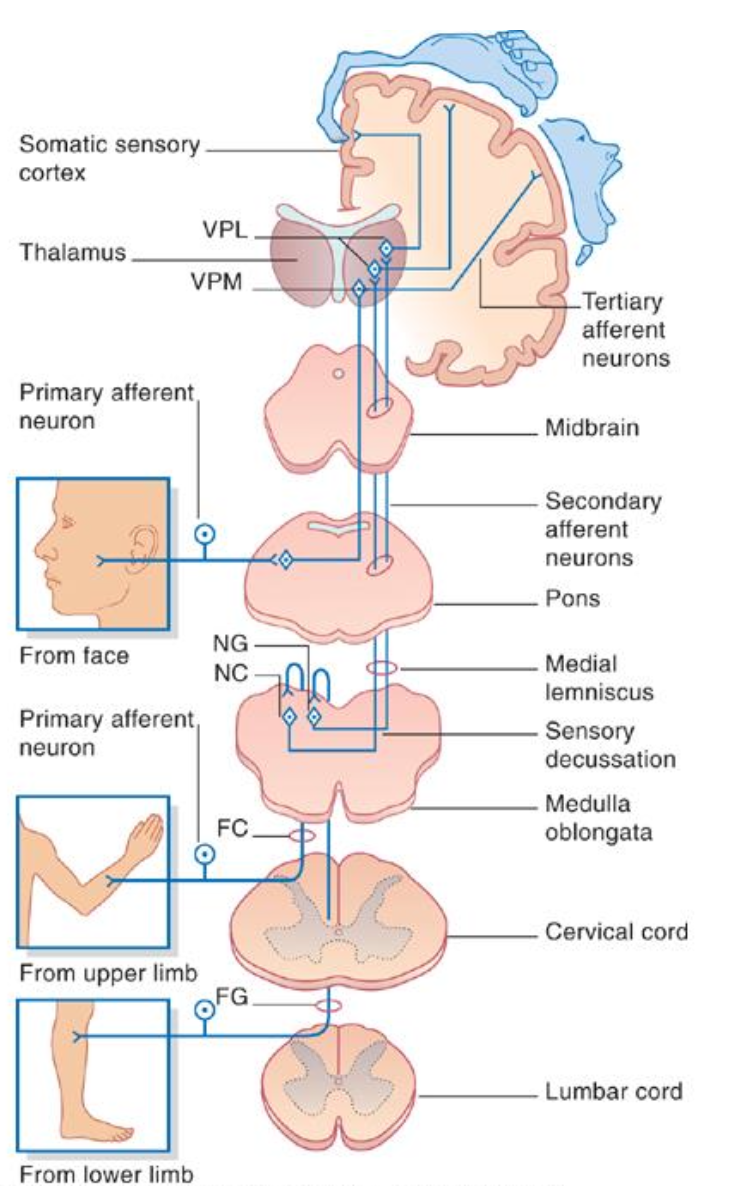
Dorsal Column–Medial Lemniscus Pathway (DCML)
Originates in dorsal root ganglia (Aβ fibers);
decussates in the medulla via internal arcuate fibers;
ascends through fasciculus gracilis and cuneatus to nuclei gracilis/cuneatus, then via medial lemniscus to the thalamus (VPL); conveys fine touch, vibration, and proprioception.
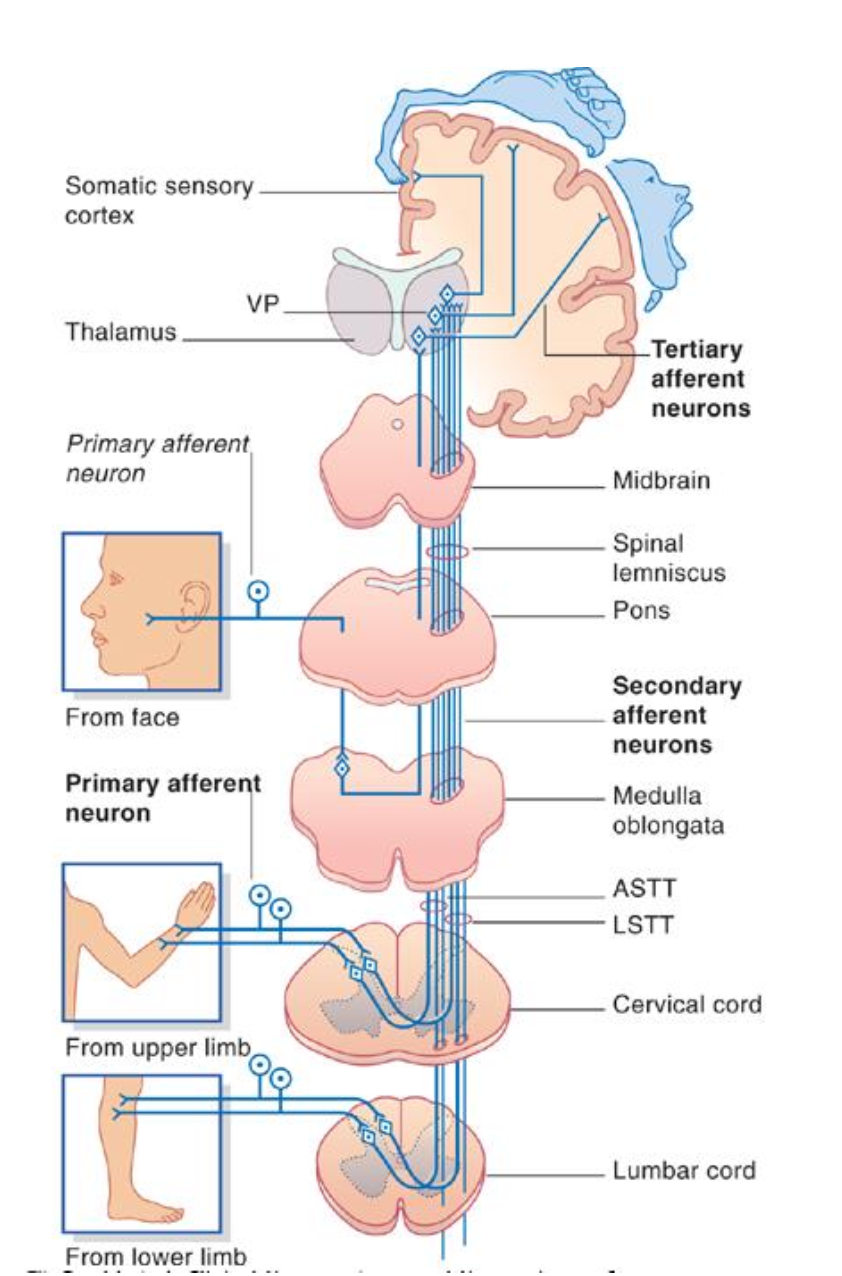
Spinothalamic Tract (Anterolateral System)
Originates in dorsal horn neurons (lamina I–V);
decussates in spinal cord (anterior white commissure);
ascends to thalamus (VPL) and somatosensory cortex;
conveys pain, temperature, and crude touch.
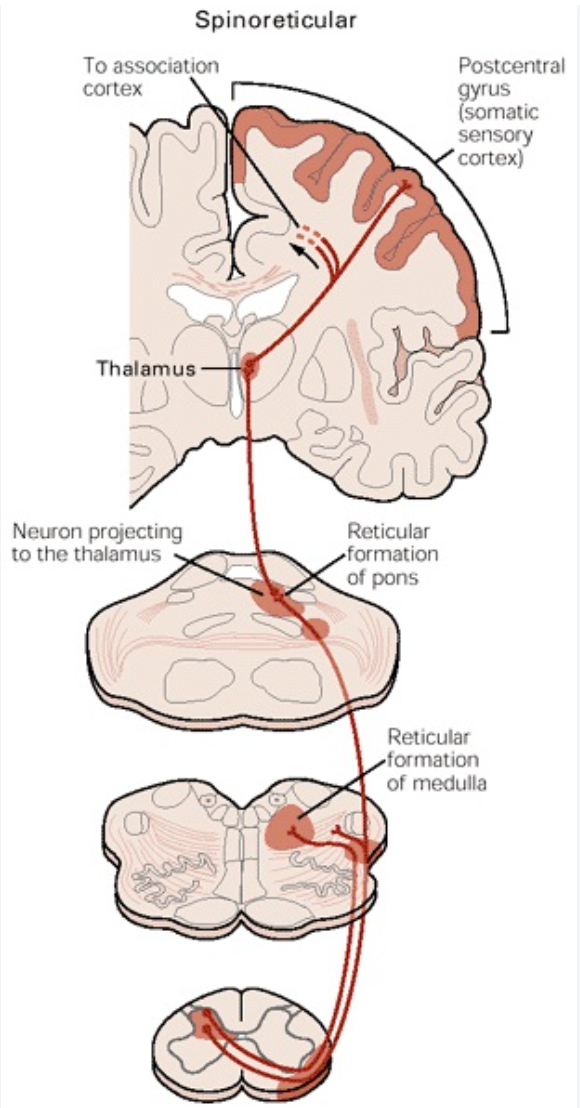
Spinoreticular Tract
Originates in dorsal horn;
partially decussates in spinal cord;
ascends to reticular formation and intralaminar thalamic nuclei;
mediates arousal and emotional aspects of pain.
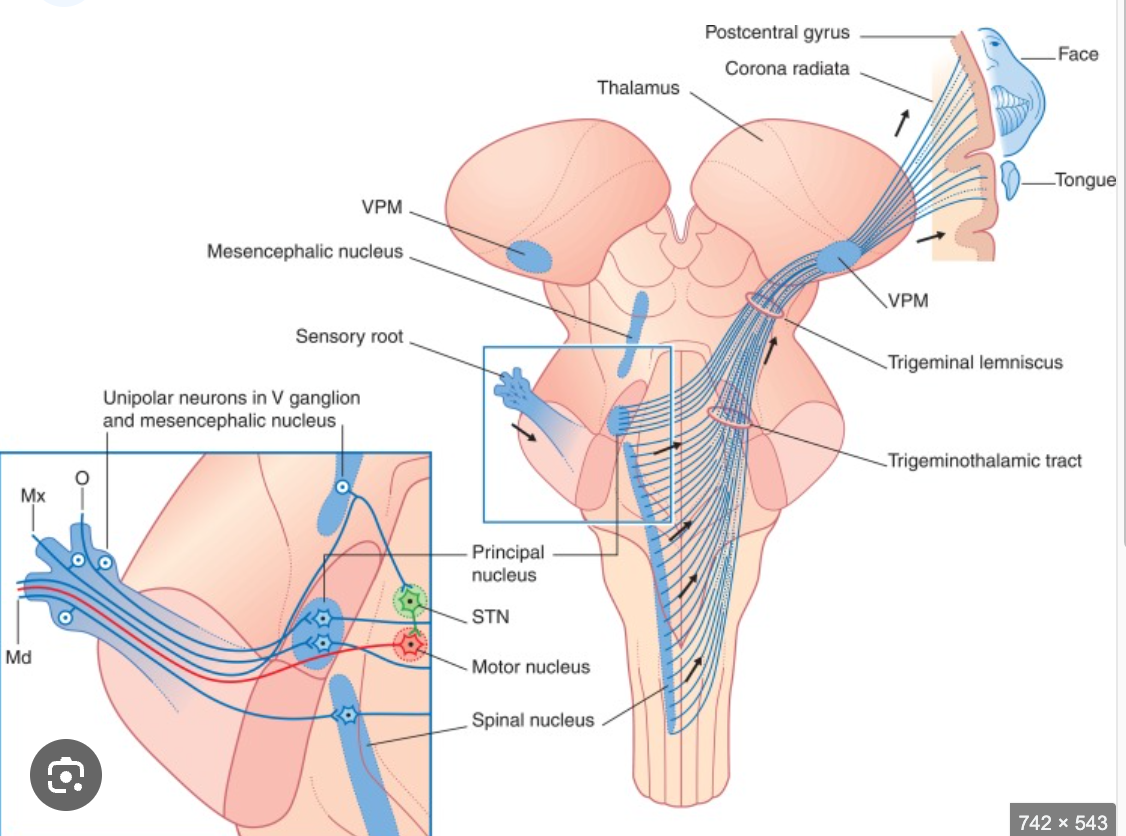
Spinomesencephalic Tract
Originates in dorsal horn;
decussates in spinal cord; ascends to periaqueductal gray and superior colliculus;
functions in pain modulation and orienting reflexes.
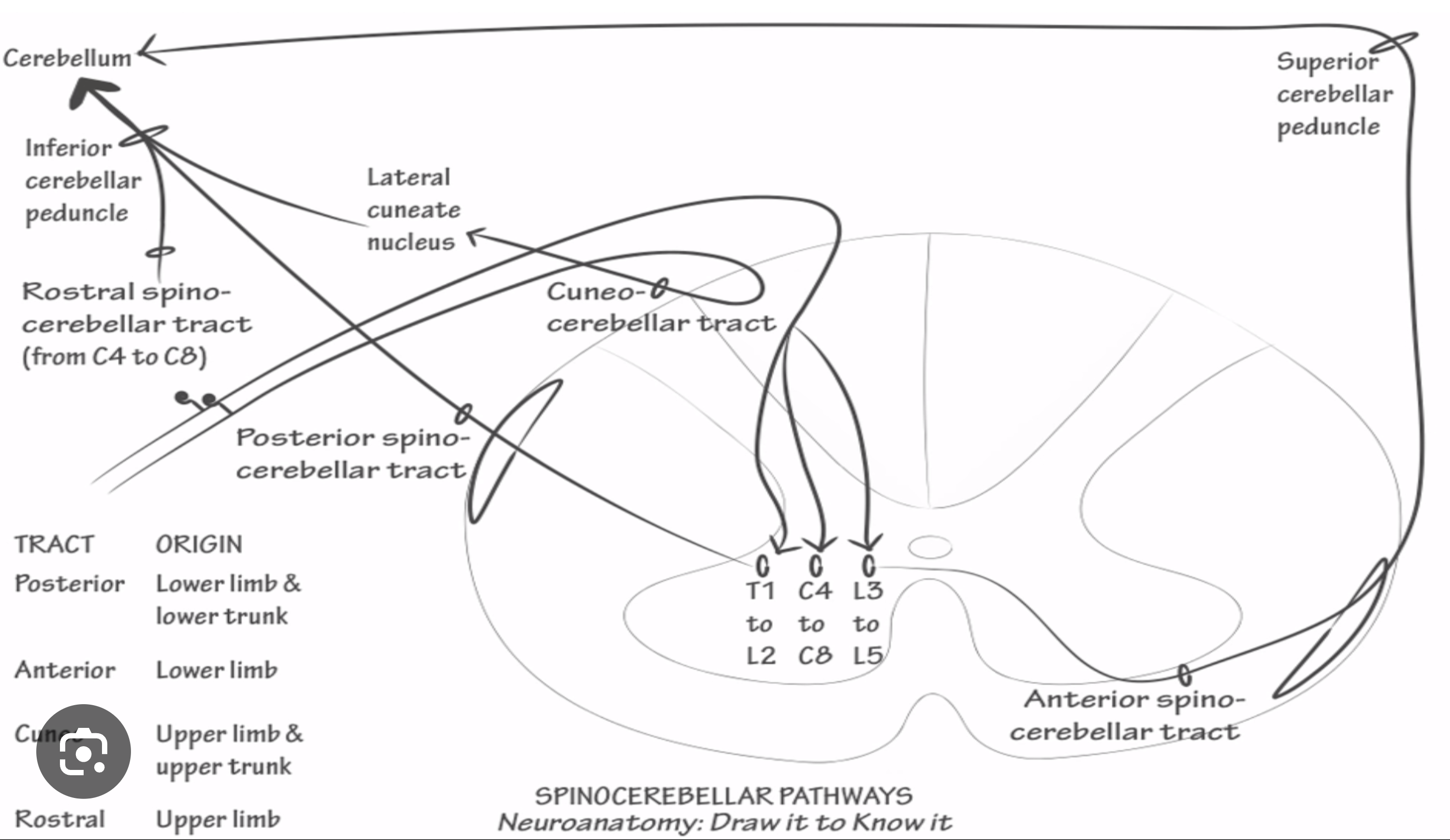
Posterior Spinocerebellar Tract
Originates in Clarke’s column (T1–L2);
ascends ipsilaterally to cerebellum via inferior cerebellar peduncle;
conveys unconscious proprioception from lower limbs.
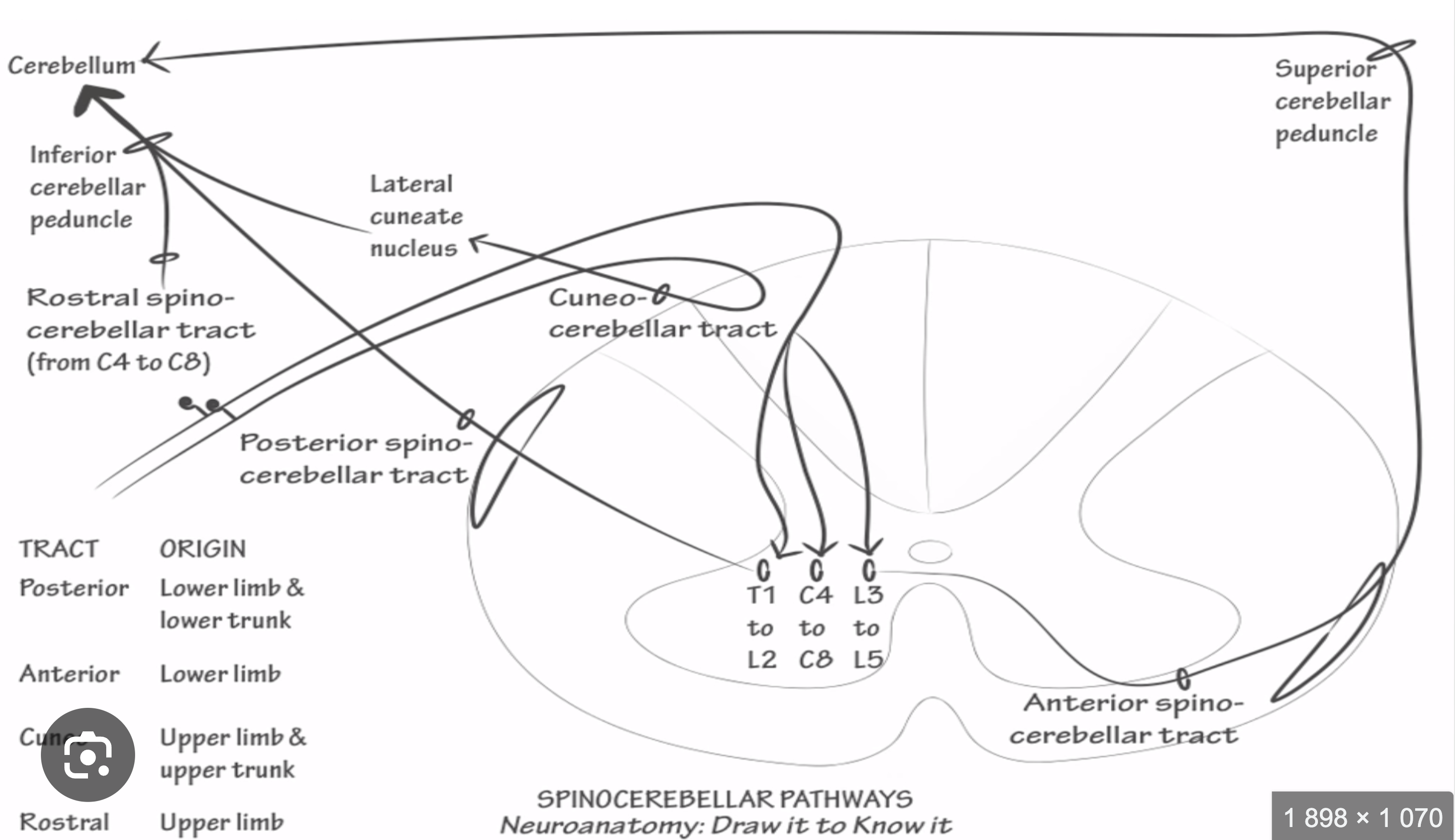
Anterior Spinocerebellar Tract
Originates in spinal border cells;
double decussation in spinal cord and cerebellum;
ascends to cerebellum via superior cerebellar peduncle;
conveys unconscious proprioception from lower limbs.
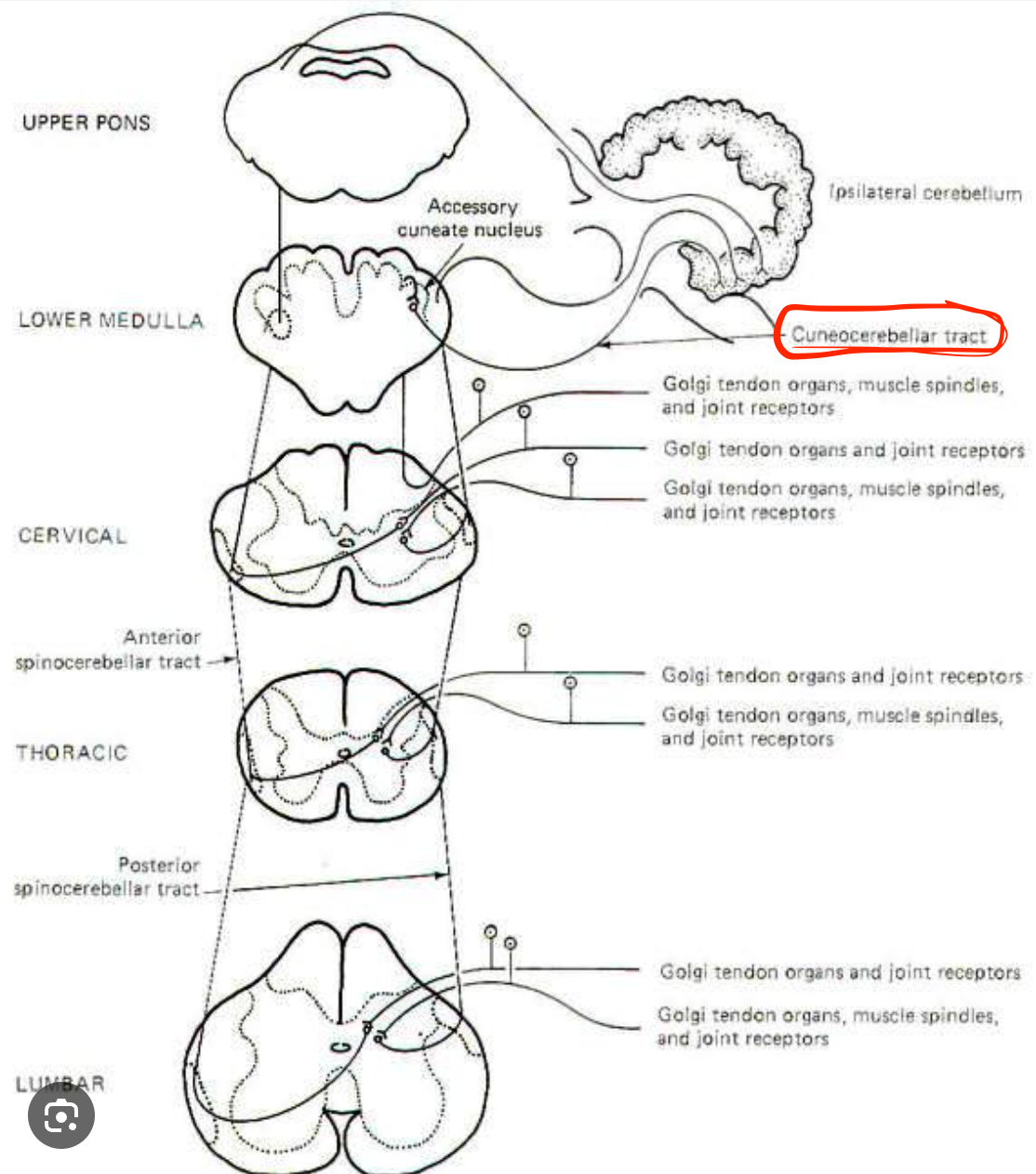
Cuneocerebellar Tract
Originates in accessory cuneate nucleus of the medulla;
ascends ipsilaterally to cerebellum via inferior cerebellar peduncle;
conveys unconscious proprioception from upper limbs.
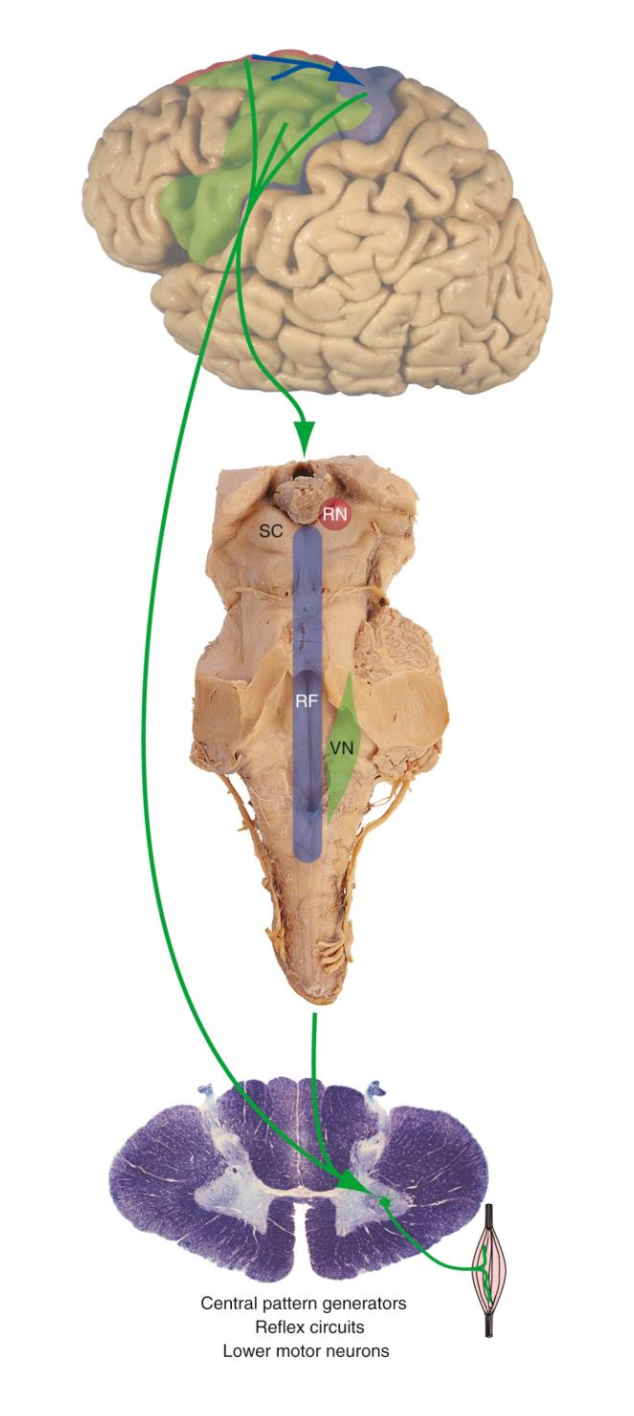
Corticospinal Tract
Originates in motor cortex (precentral gyrus);
descends through internal capsule, cerebral peduncle, and medulla; 85–90% decussate at medullary pyramids forming the lateral corticospinal tract;
controls voluntary limb and trunk movements.
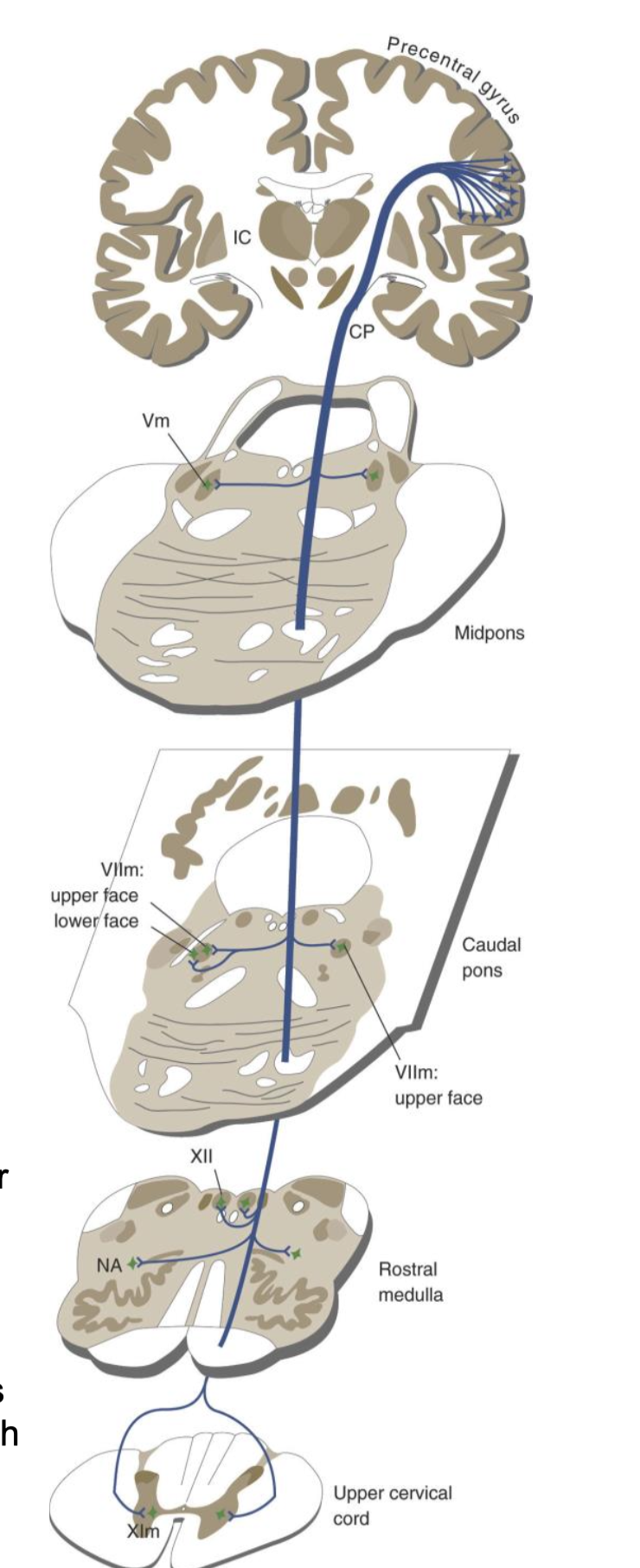
Corticobulbar Tract
Originates in face area of motor cortex; descends through internal capsule to cranial nerve nuclei III–VII and IX–XII;
controls voluntary movement of face, tongue, and jaw muscles.*
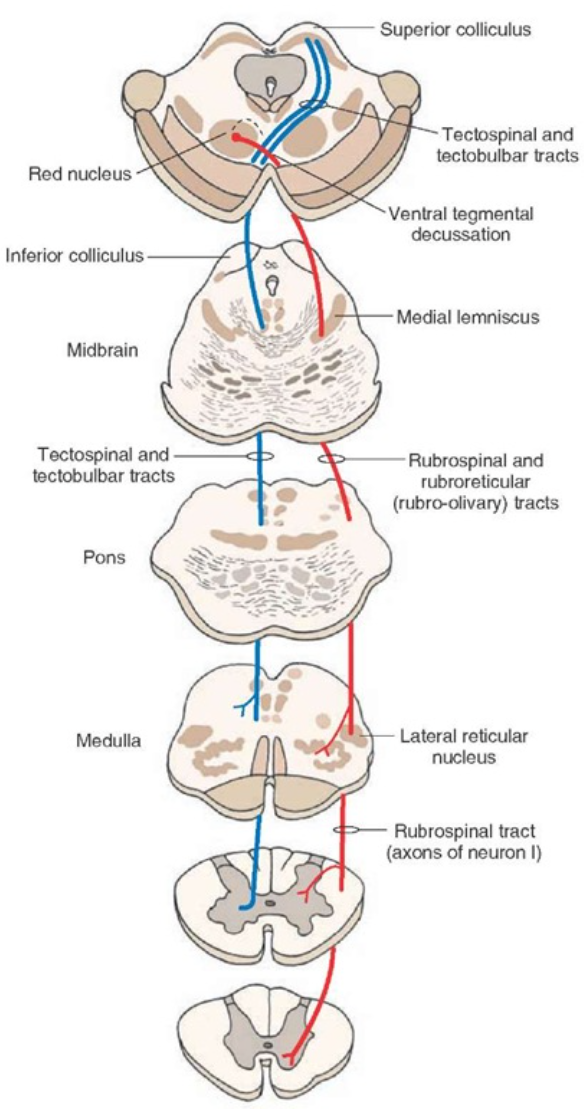
Rubrospinal Tract
Originates in red nucleus of the midbrain;
decussates in ventral tegmentum;
facilitates flexor tone and inhibits extensors, mainly in the upper limbs.
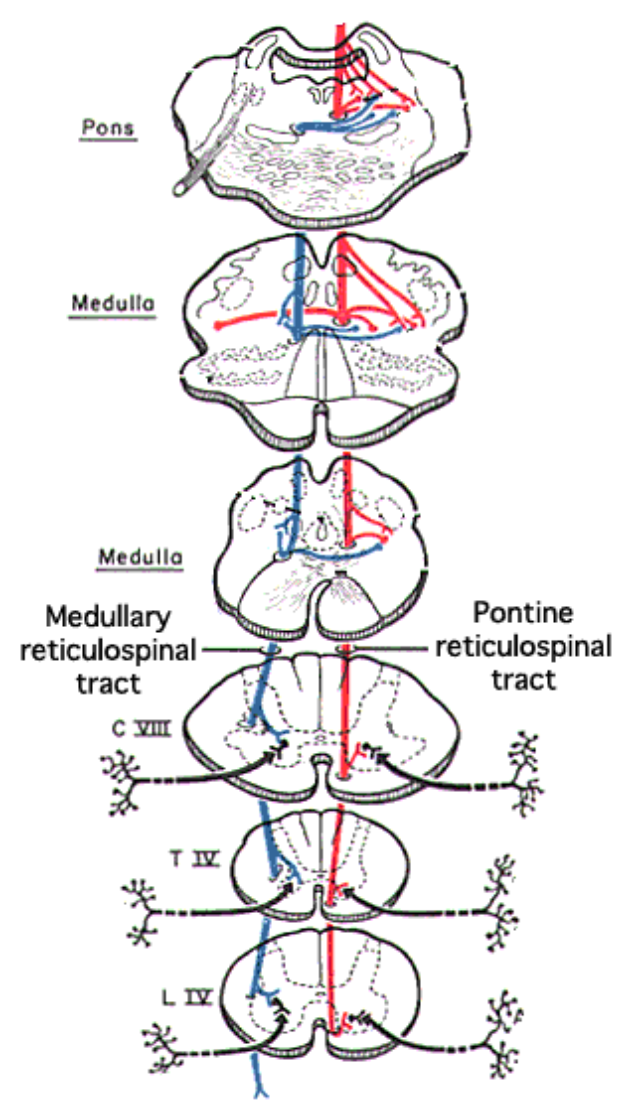
Pontine (Medial) Reticulospinal Tract
Originates in pontine reticular formation;
descends ipsilaterally;
facilitates extensor tone and posture.*
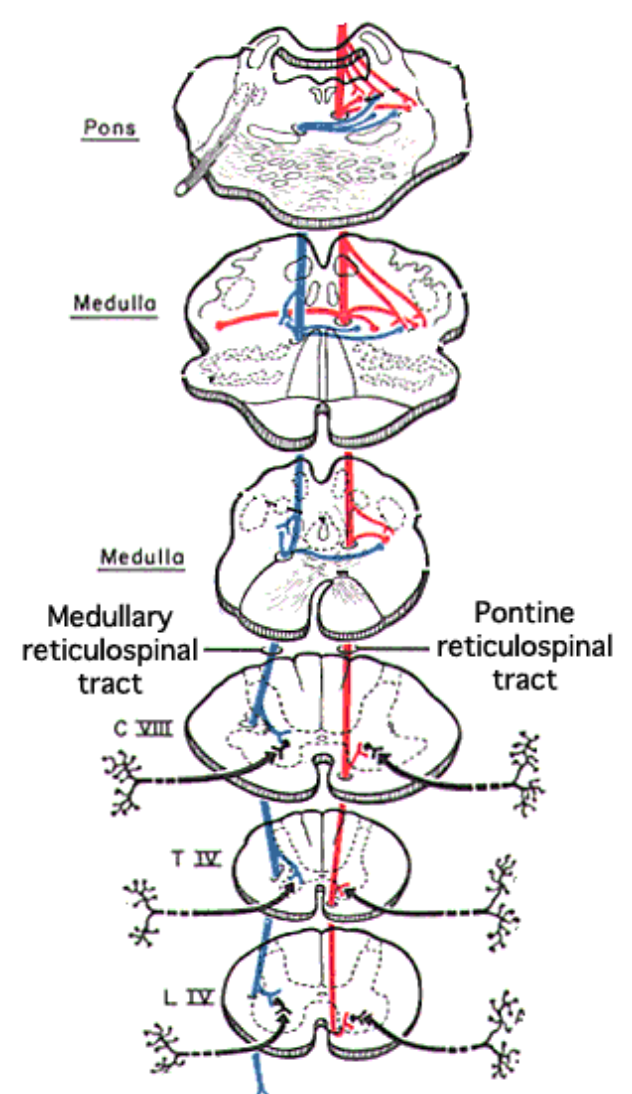
Medullary (Lateral) Reticulospinal Tract
Originates in medullary reticular formation;
descends bilaterally;
inhibits extensor tone and modulates voluntary movement.*
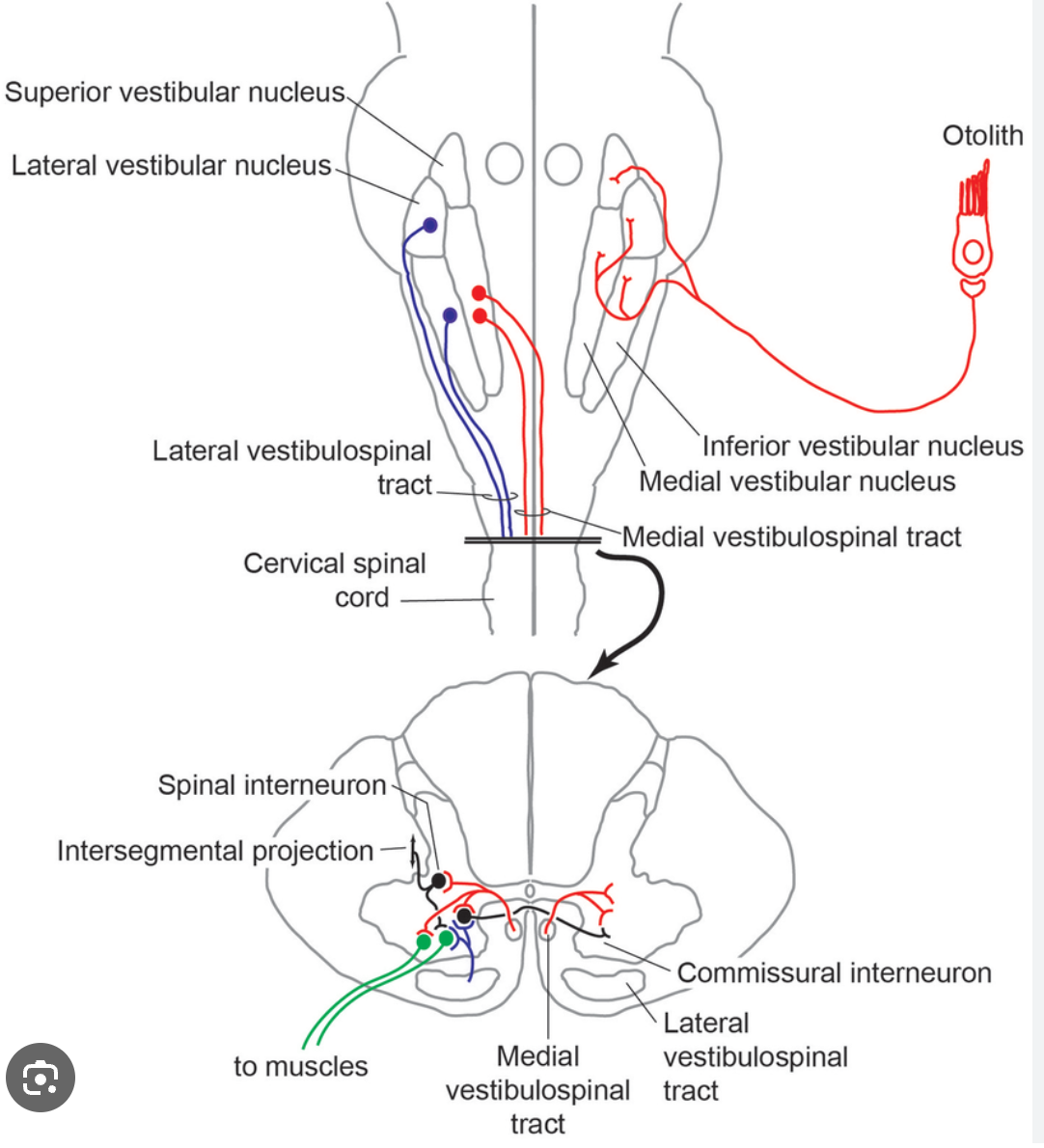
Lateral Vestibulospinal Tract
Originates in lateral vestibular nucleus;
descends ipsilaterally;
maintains balance and posture by facilitating extensor tone.
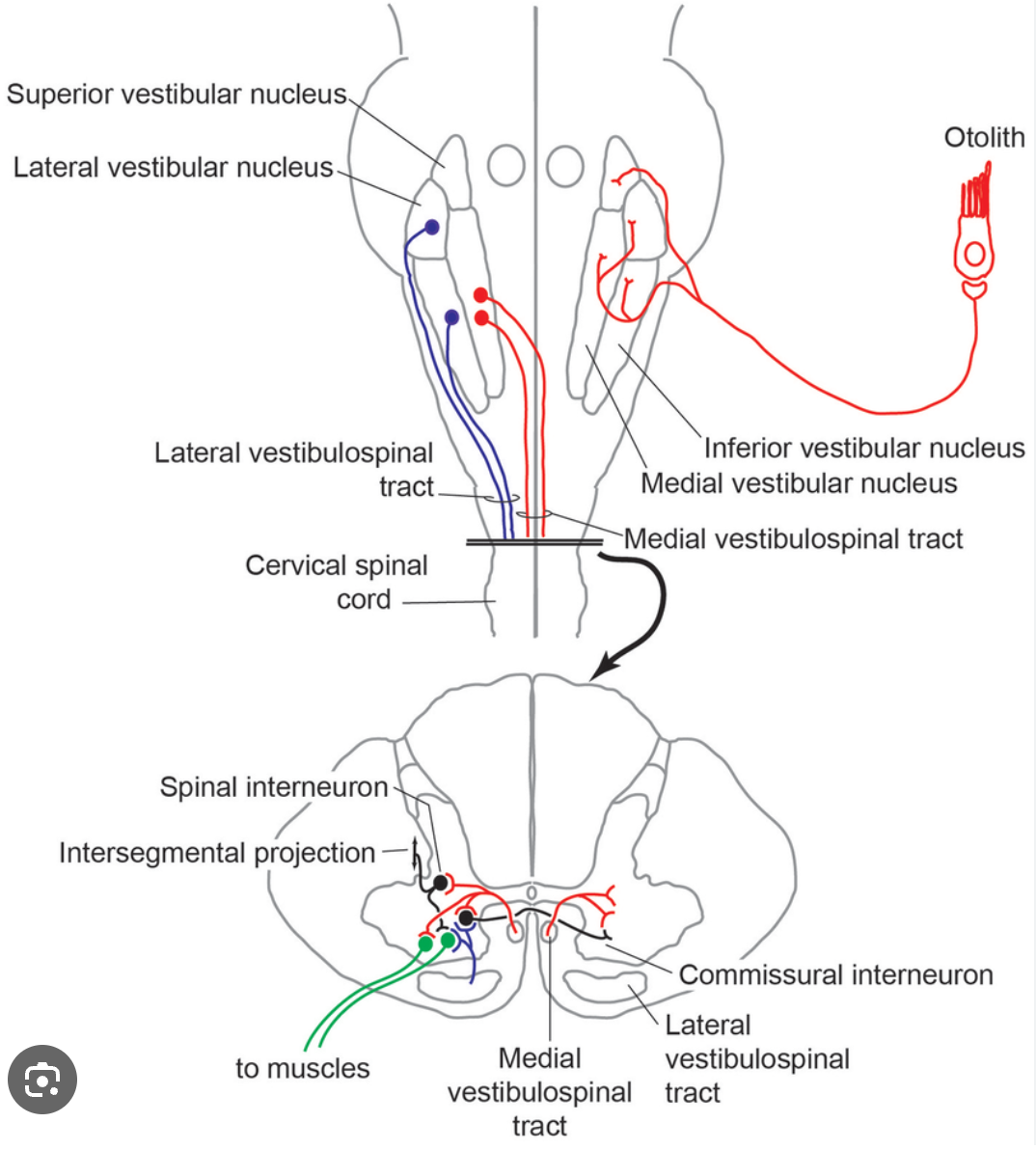
Medial Vestibulospinal Tract
Originates in medial vestibular nucleus;
descends bilaterally;
controls head and neck position for vestibulo-collic reflexes.
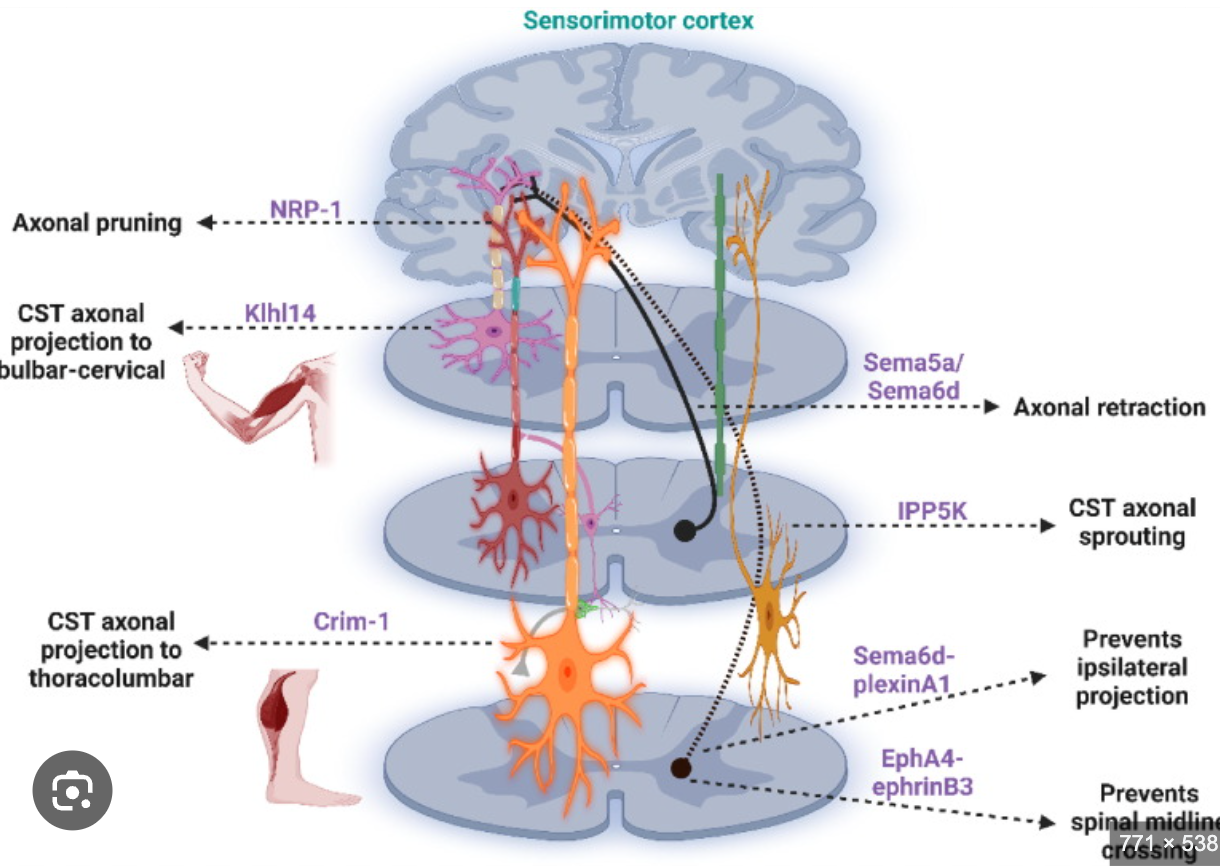
Tectospinal Tract
Originates in superior colliculus (midbrain);
decussates in dorsal tegmentum;
mediates reflex turning of head and eyes toward visual or auditory stimuli.*
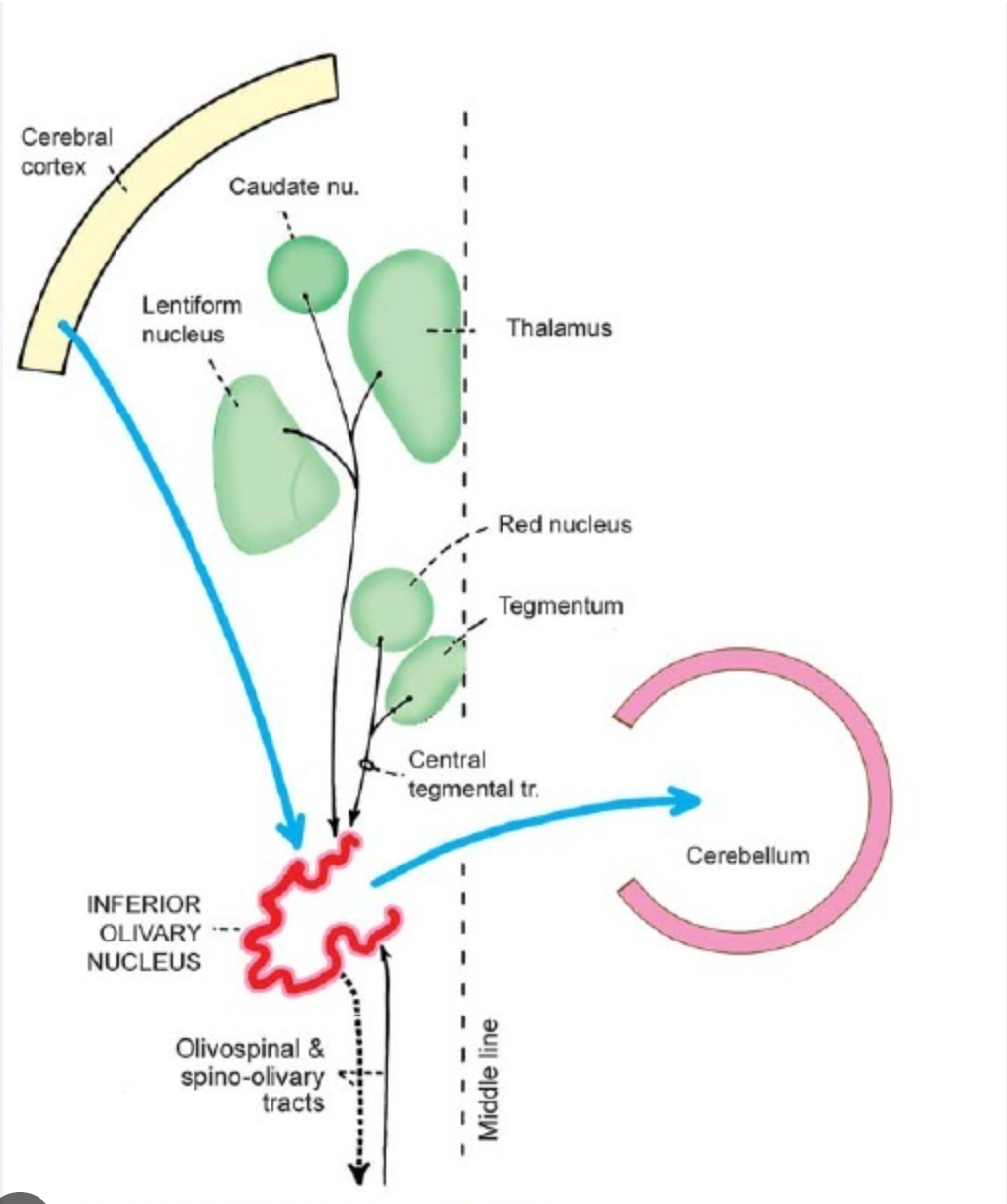
Olivospinal Tract
Originates in inferior olivary nucleus (medulla);
modulates motor activity through cerebellar feedback circuits.
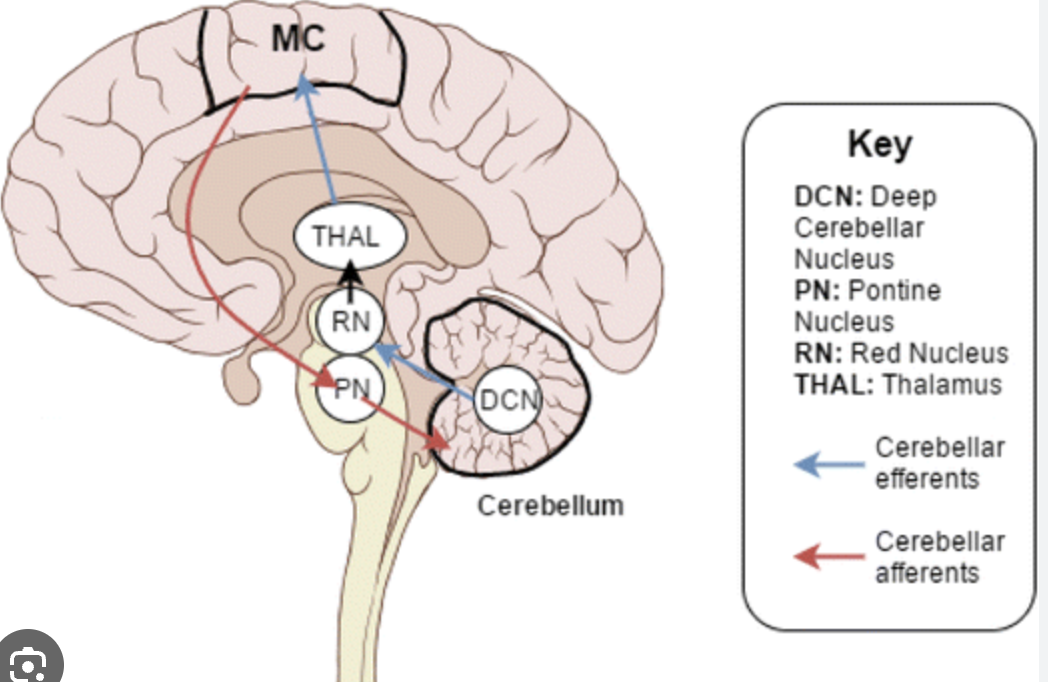
Corticopontocerebellar Tract
Originates in cerebral cortex;
synapses in pontine nuclei; crosses to opposite side via middle cerebellar peduncle;
conveys intended motor plan to cerebellum.*
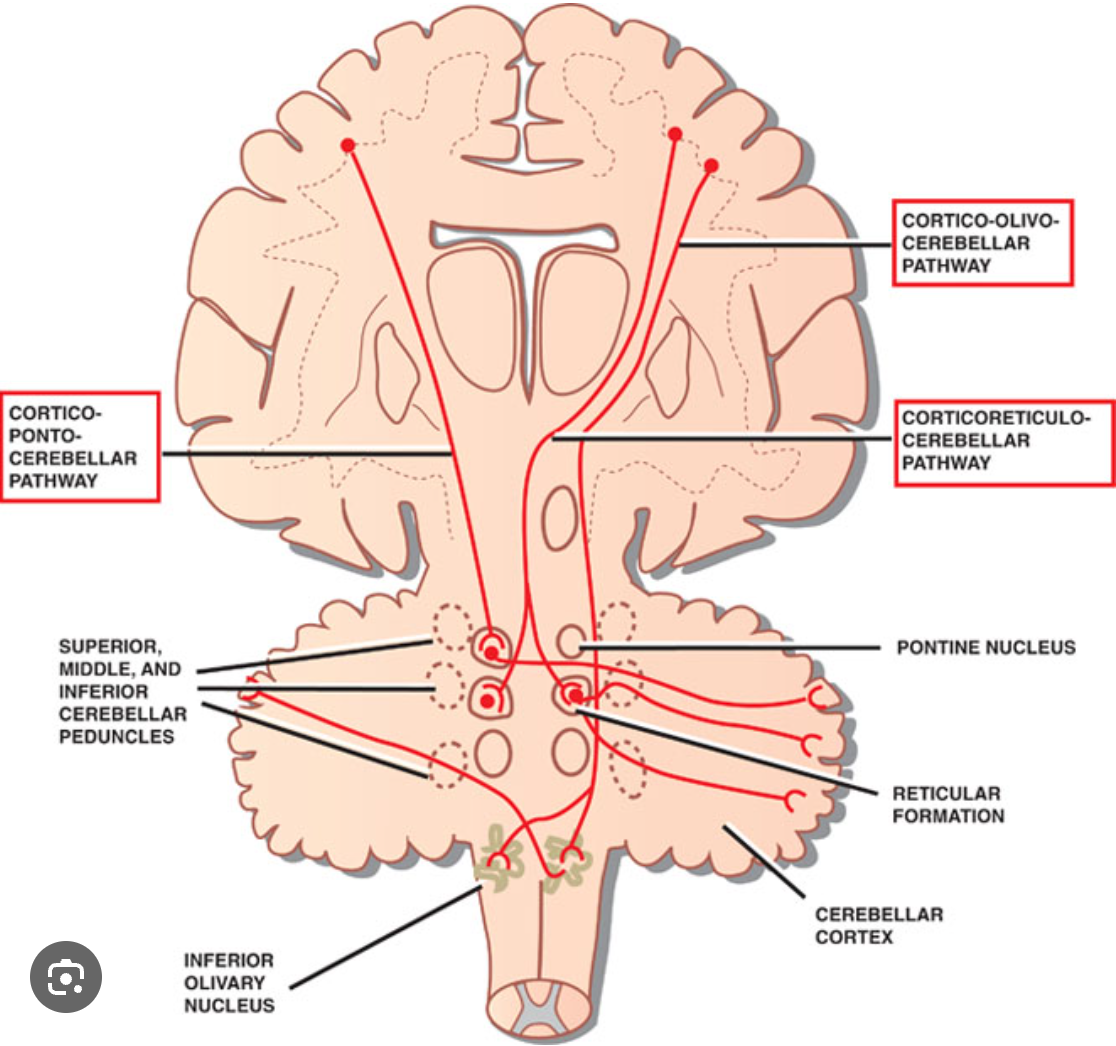
Olivocerebellar Tract
Originates in inferior olive;
crosses midline and enters cerebellum via inferior cerebellar peduncle;
important for motor learning and coordination.*
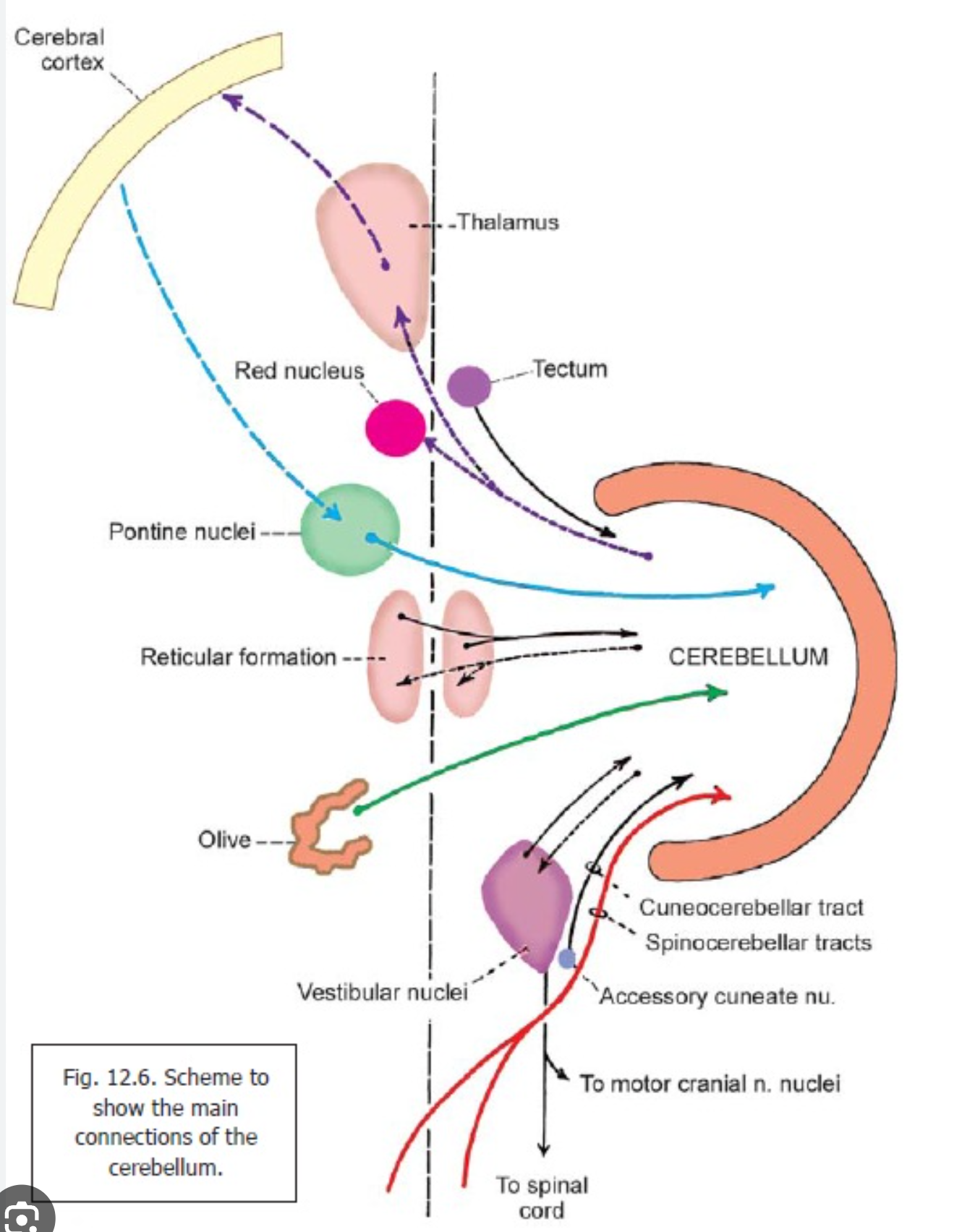
Vestibulocerebellar Tract
Originates from vestibular nuclei and nerve;
projects to flocculonodular lobe of cerebellum;
maintains balance and coordinates eye movements.*
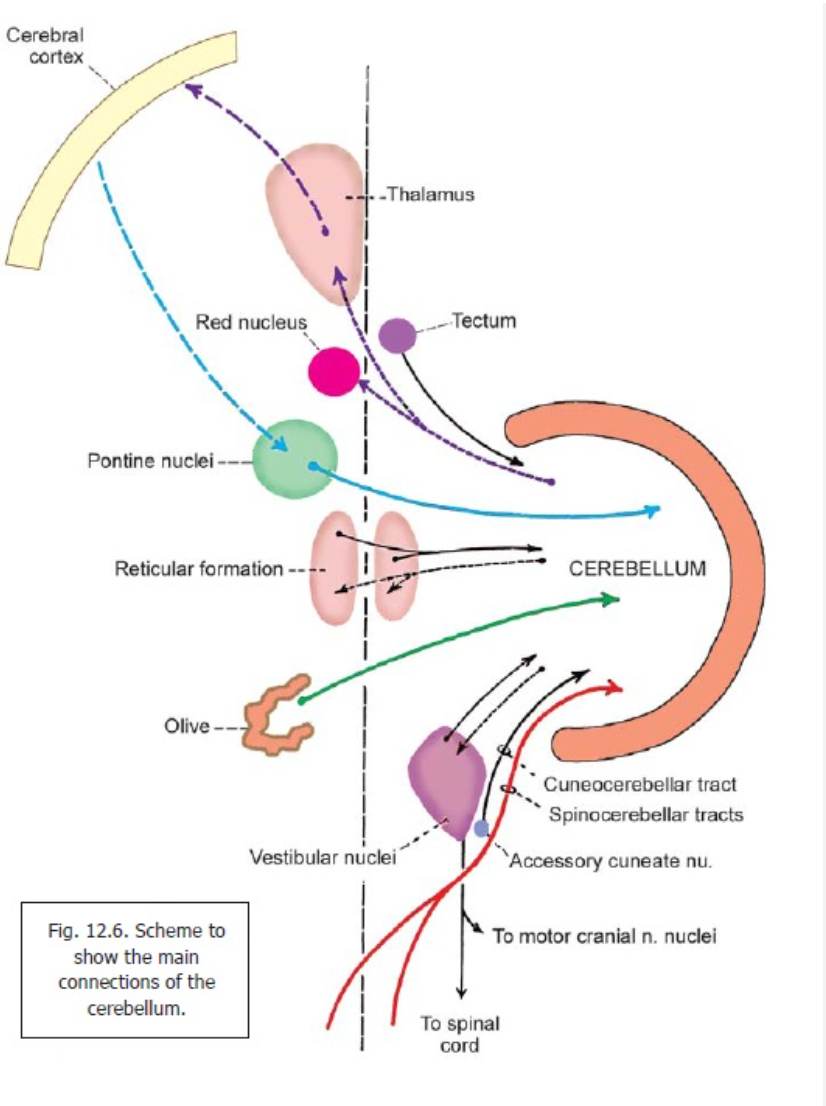
Reticulocerebellar Tract
Originates in reticular formation;
projects bilaterally to cerebellum;
integrates posture and muscle tone control.*
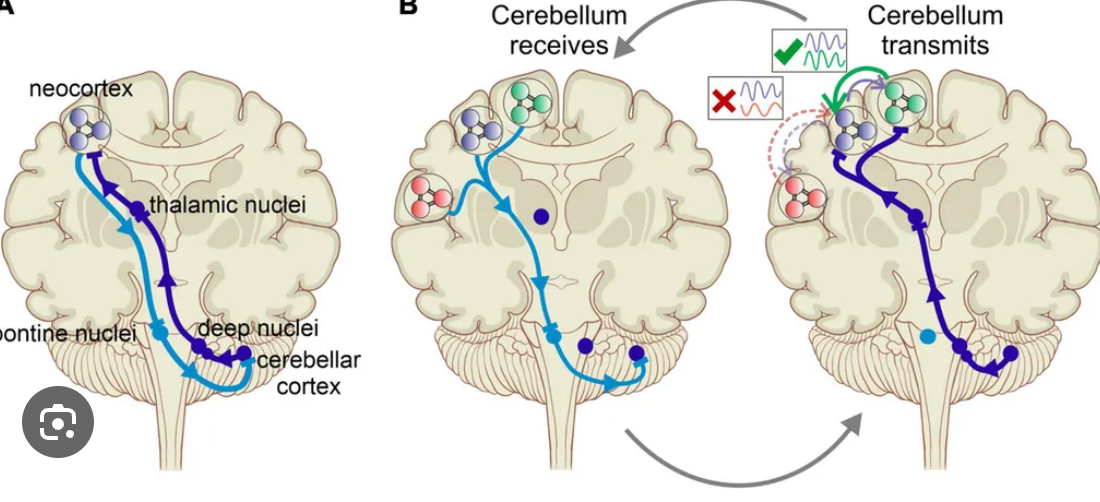
Cerebellorubral Tract
Originates in interposed nuclei of cerebellum;
projects to red nucleus;
coordinates cerebellar output with motor activity.*
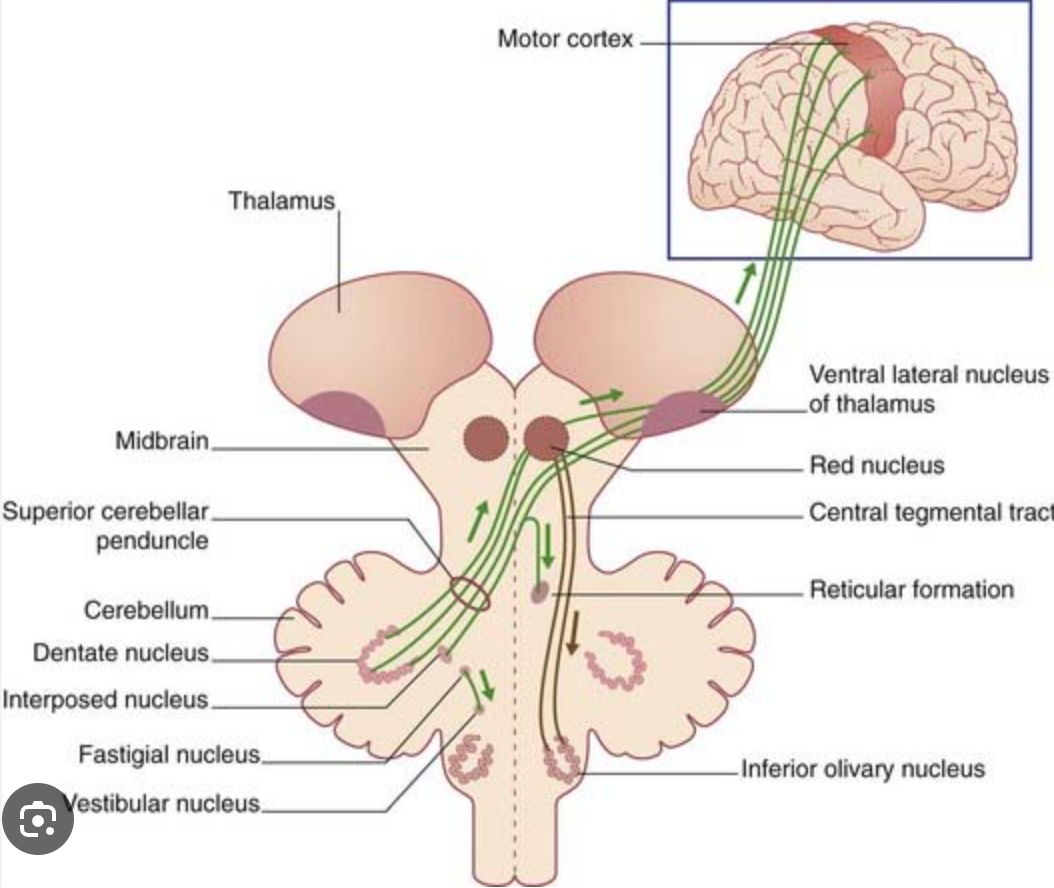
Cerebellothalamic Tract
Originates in dentate nucleus;
projects to ventral lateral thalamic nucleus;
transmits cerebellar output to motor cortex for movement coordination.*
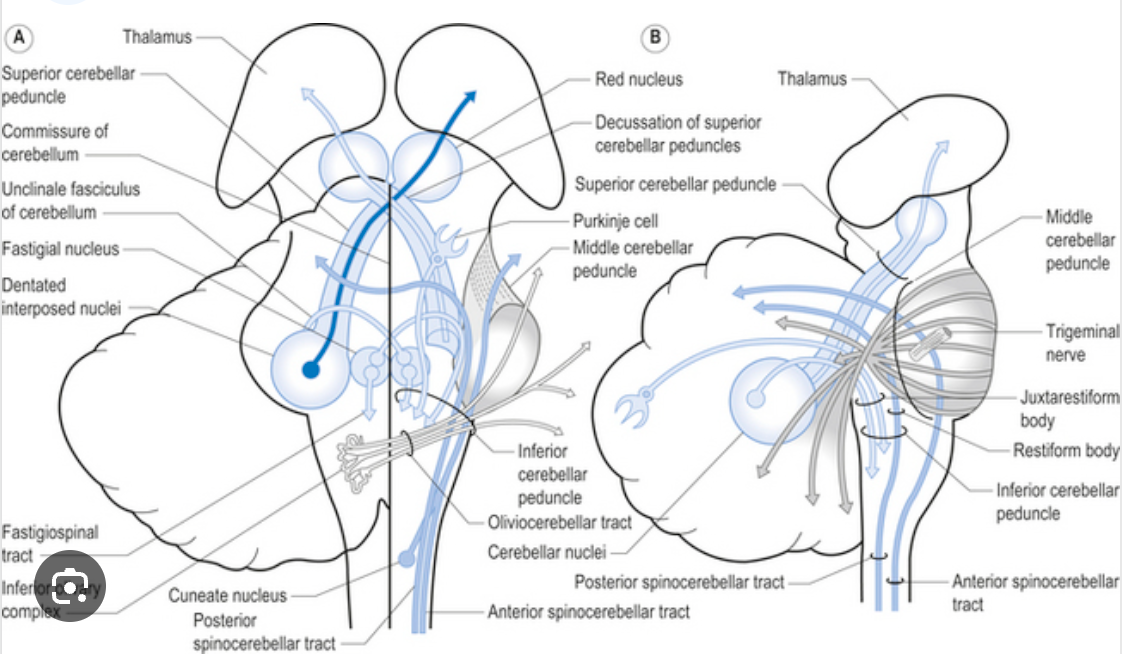
Cerebellovestibular Tract
Originates in fastigial nucleus;
projects to vestibular nuclei;
maintains equilibrium and posture.*
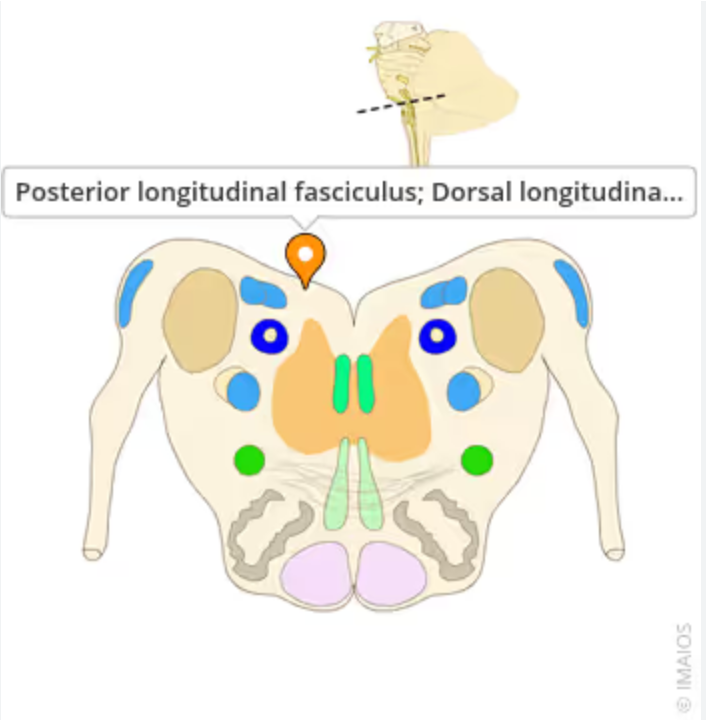
Dorsal Longitudinal Fasciculus
Originates in hypothalamus;
descends to parasympathetic and sympathetic nuclei in brainstem and spinal cord;
regulates visceral and autonomic functions.*
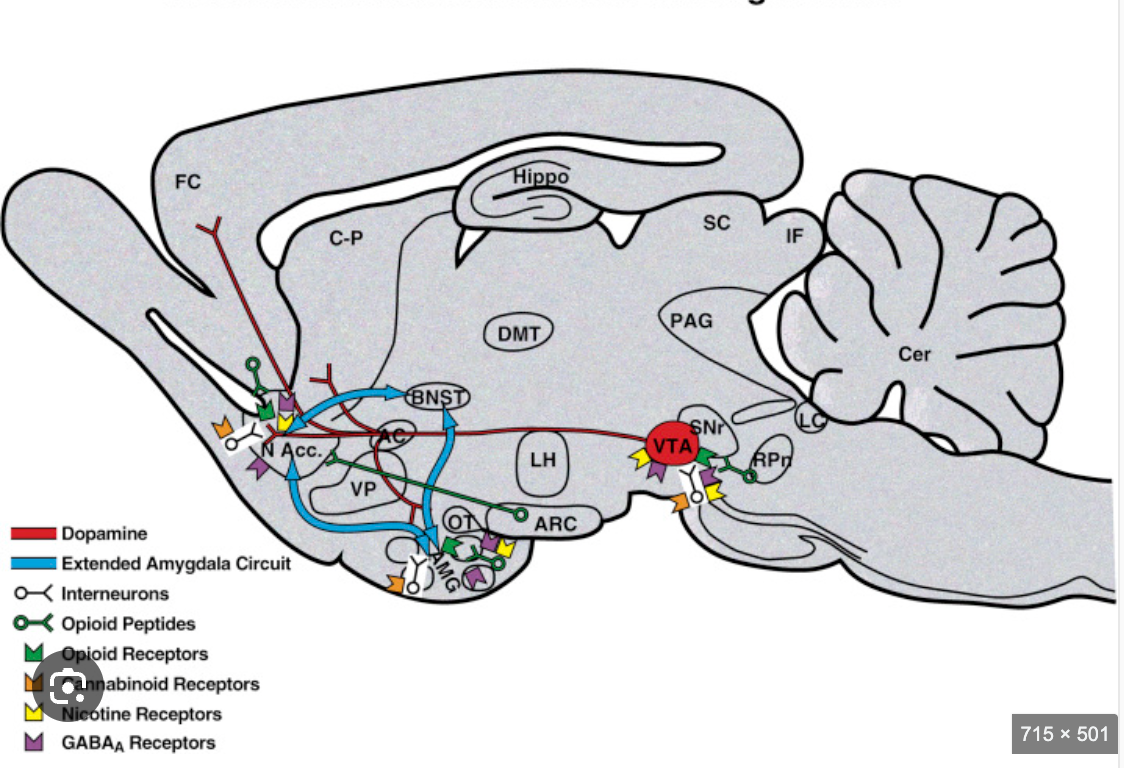
Medial Forebrain Bundle
Originates in olfactory, septal, hypothalamic, and midbrain nuclei;
interconnects limbic and autonomic centers;
regulates reward, motivation, and visceral responses.*
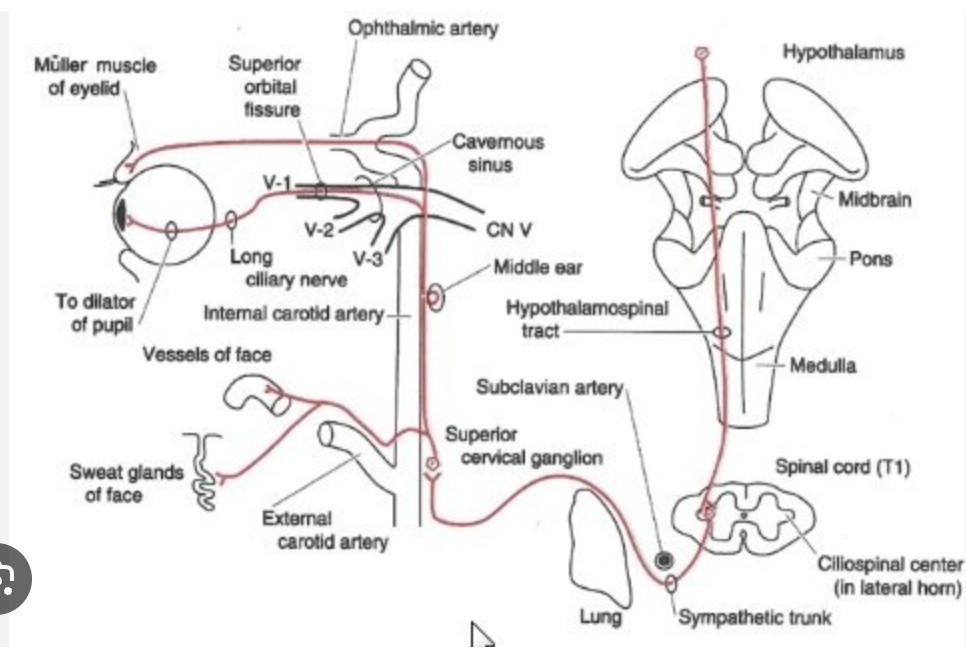
Hypothalamospinal Tract
Originates in posterior hypothalamus;
descends to intermediolateral cell column (T1–L2);
mediates sympathetic responses such as pupil dilation and vasomotor tone.*
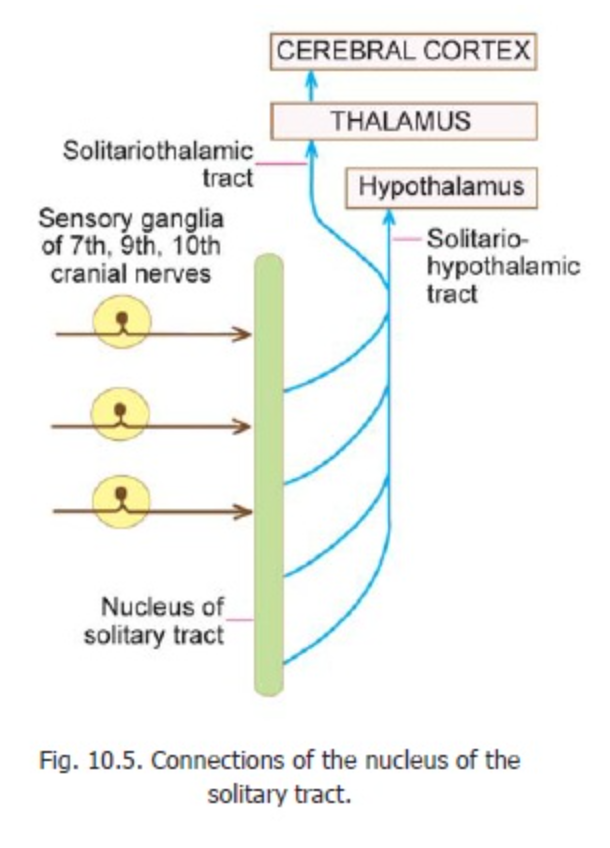
Solitariospinal Tract
Originates in nucleus tractus solitarius (medulla);
integrates visceral sensory input with autonomic reflex pathways.*